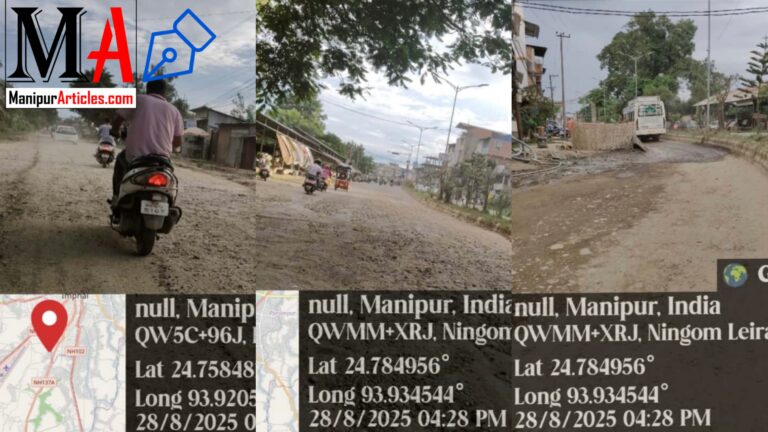Protestors Question Modi’s ‘Beti Bachao Beti Padhao’ Amid Jiribam Tragedy
Short Summary
The recent tragedy in Jiribam, Manipur, involving the gruesome killings of a woman and two children, has sparked widespread outrage and protests across the region. Protestors criticized the central government’s response, with some questioning Prime Minister Narendra Modi’s ‘Beti Bachao Beti Padhao’ slogan. Community leaders and activists have called for immediate justice, transparency, and accountability, citing ongoing violence and failures to protect civilians. This incident is a painful reminder of the persistent ethnic tensions in Manipur, exacerbated by the government’s alleged inability to maintain peace and safety in the state.
Long Article
Understanding the Jiribam Tragedy
Manipur, a state fraught with ethnic tensions, witnessed another heartbreaking incident recently in Jiribam. A woman and her two young children, including an eight-month-old infant, were brutally killed, allegedly by Kuki militants. The shocking nature of this violence has left the community in mourning and sparked widespread protests across the state, especially in districts like Thoubal and Kakching. This tragic incident is part of a larger pattern of unrest, marked by ethnic violence, political inaction, and social upheaval.
Public Outrage and Protests
The response to this tragedy was swift and widespread. Markets across Thoubal and Kakching districts were shut down in protest, and public demonstrations were organized by various civil society groups. Meira Paibis (women’s vigil groups) led protests demanding justice, holding placards with messages like “Save Children and Civilians.” Many questioned the state and central governments’ inaction, urging leaders to address the deteriorating law-and-order situation.
The apex body of 18 local organizations convened to demand justice and issued a strong condemnation of the killings. They also called for significant political action, such as the resignation of local MLAs and ministers and the repeal of the Armed Forces Special Powers Act (AFSPA), which has been a contentious issue in the region for decades
Why Modi’s ‘Beti Bachao Beti Padhao’ is Under Scrutiny
The tragedy has reignited criticism of Prime Minister Modi’s flagship initiative, “Beti Bachao Beti Padhao” (Save the Daughter, Educate the Daughter). Protestors and grieving families see the incident as a stark contradiction to the promise of safety and empowerment for women. For instance, Linthoingambi’s father, still awaiting the remains of his daughter who was killed in the Manipur violence last year, called the government’s response a betrayal of this slogan. He and other protestors argue that the central government’s lack of tangible action undermines the spirit of the campaign
.
Ethnic Violence and Its Implications
The Jiribam killings are deeply rooted in the ethnic conflict between the Meitei and Kuki communities. Accusations of bias and inaction have been leveled against security forces, with allegations that they stood by during attacks or failed to prevent violence. Such incidents have only deepened the mistrust and division between communities.
Organizations like the Committee on Tribal Unity (CoTU) have staged protests highlighting what they call targeted violence against their community. They have also criticized the deployment of the CRPF (Central Reserve Police Force), alleging complicity in the Jiribam incident
.
The Role of Civil Society and Demands for Justice
Amid the chaos, civil society groups and local leaders are stepping up. They have made a series of demands, including the immediate apprehension of the culprits, an independent investigation, and the withdrawal of arms from state forces. Protestors are also calling for a return to pre-merger status for Manipur, reflecting long-standing grievances against the central government’s policies.
Where Do We Go From Here?
The Jiribam tragedy is not an isolated event but part of a larger crisis that has plagued Manipur for years. The state’s challenges are compounded by a mix of ethnic tensions, mistrust in government, and lack of accountability. Addressing this crisis requires more than just slogans; it demands a comprehensive strategy that prioritizes justice, reconciliation, and peacebuilding.
FAQs
- What triggered the protests in Jiribam?
The protests were sparked by the killings of a woman and her two children, allegedly by Kuki militants, which highlighted the ongoing ethnic violence in Manipur. - Why is ‘Beti Bachao Beti Padhao’ being criticized?
Protestors see the central government’s failure to protect women and children in conflict zones as a contradiction to the campaign’s goals. - What are the protestors demanding?
They are calling for justice for the victims, the repeal of AFSPA, the resignation of local MLAs, and better protection for civilians. - How has the ethnic conflict influenced the situation?
Longstanding tensions between the Meitei and Kuki communities have fueled violence, with accusations of government bias worsening the divide. - What role has civil society played in the protests?
Civil society groups have organized protests, issued demands, and advocated for justice and peace in the wake of the Jiribam tragedy.


